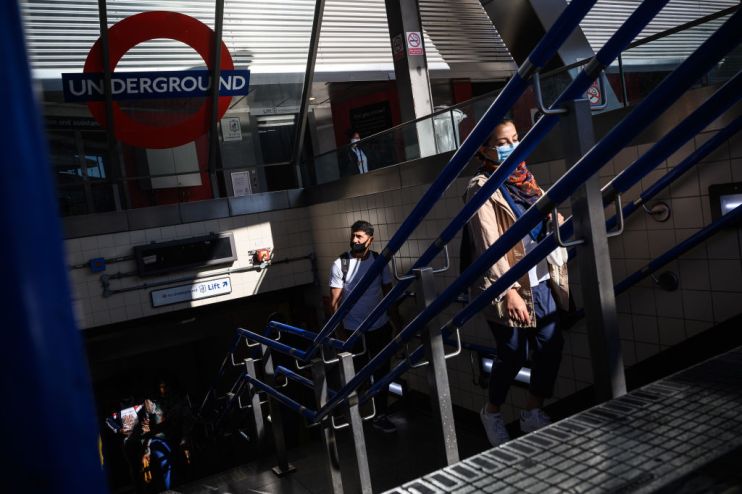Transport for London facing £2bn a year funding gap, warns report

Transport for London (TfL) is facing a funding gap of up to £2bn every year as a result of Covid-19, a new report has found.
The pandemic has forced passengers off London’s transport network in record numbers, causing its finances to crumble.
The operator has already received two bailout deals with a combined worth of more than £3bn from the government, with a new deal likely to be needed in the next couple of months.
As a result of the latest lockdowns, passenger numbers have tumbled again, falling back to levels not seen since April.
Unlike similar transport bodies around the world, TfL’s finances are heavily exposed to fare revenue, especially since the government cut the network’s operating grant in 2018.
Unless TfL takes steps to change its funding model, it will face a funding gap of between £500m and £2bn, say London First and engineering firm Arup.
In their report, the two identify four policies that could help to plug the hole in the operator’s accounts.
First, they propose a new vehicle ownership charge for London cars to replace the existing Vehicle Excise Duty.
Before the Open: Get the jump on the markets with our early morning newsletter
“Replacing VED for all vehicles registered in London would allow the level of tax to be set by the Mayor, incentivise faster change to vehicles with less environmental impact, and could be applied across the full spectrum of road users”, it said.
The report also proposed combining the Congestion and ULEZ charges, as well as other tolls, into an integrated charging scheme with rates set according to the type of vehicle, time of day, and length of journey.
Third, it suggested integrating the fare system, which is currently different for buses and tube trains, to avoid duplicating journeys.
Finally, TfL should increase travel choices by becoming the commissioning authority for new forms of transport like e-scooters.
London First chief executive Jasmine Whitebread said: “A new long-term sustainable funding deal must take into account what a 21st century global capital needs and that must include considering bolder solutions including new road pricing mechanisms and reforming fares.”